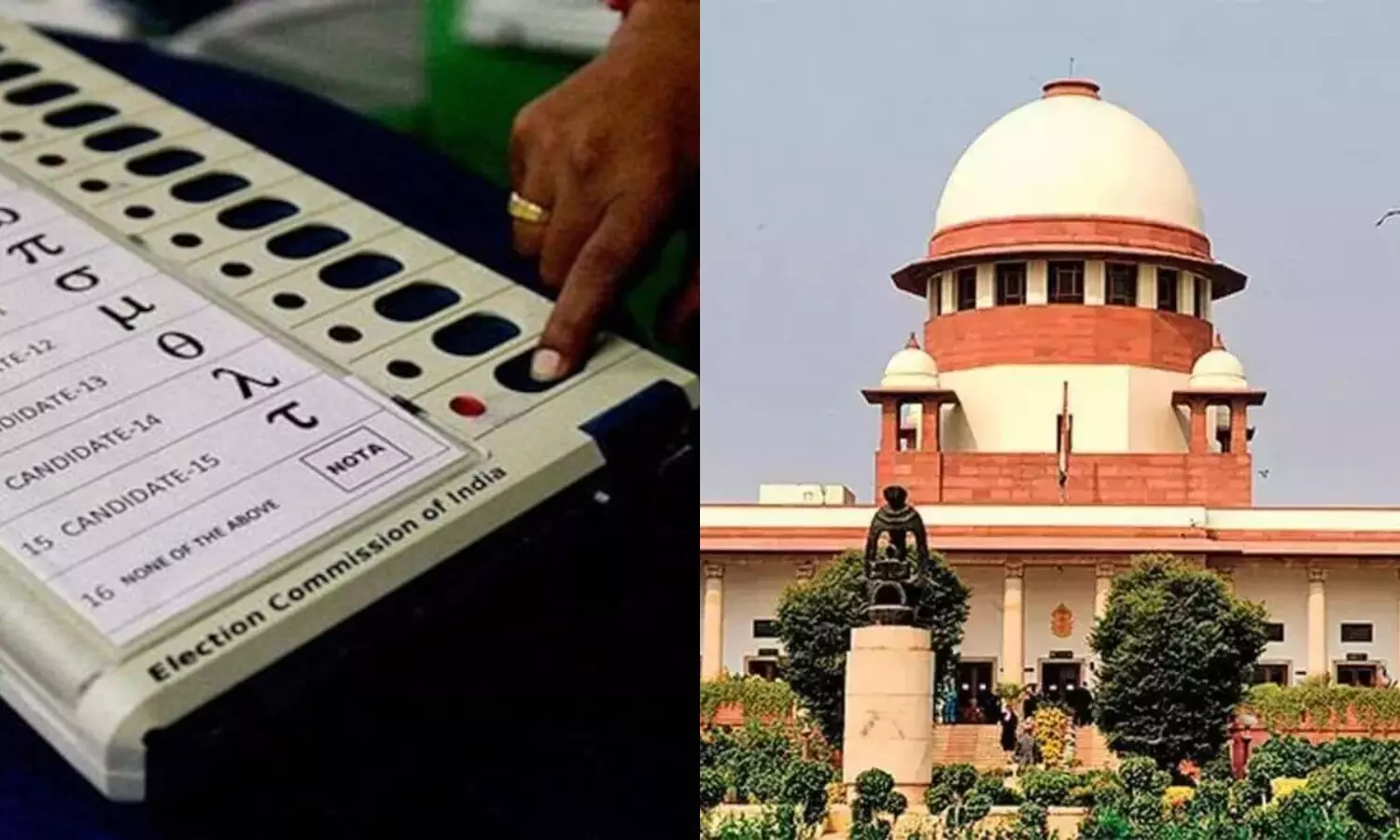In a strong rebuke, the Supreme Court of India dismissed a plea urging a return to paper ballots in elections, emphasizing that allegations of Electronic Voting Machine (EVM) tampering surface only when parties lose elections. The bench, led by Chief Justice D.Y. Chandrachud, underlined the robustness and credibility of India’s EVM-based voting system while rejecting claims of electoral malpractices.
Supreme Court Questions The Motive Behind The Plea
The petitioner sought the discontinuation of EVMs, citing their susceptibility to tampering. However, the apex court questioned the motive behind the demand, stating, “EVMs are questioned only when parties lose elections, not when they win. Why is this so?”
The Chief Justice also highlighted that the Election Commission of India (ECI) has repeatedly assured the public about the integrity and security of EVMs.

ECI Defends EVMs As Tamper-Proof
The Election Commission defended the current system, stating that EVMs are tamper-proof and provide a reliable mechanism for conducting free and fair elections. The ECI also pointed to the introduction of Voter Verifiable Paper Audit Trail (VVPAT) systems as an additional safeguard to enhance voter confidence.
“EVMs have been used successfully for decades in India’s electoral process, ensuring transparency and minimizing human error,” an ECI representative informed the court.
Allegations Of EVM Tampering Resurface
The plea claimed that EVMs could be hacked and manipulated, thus undermining the democratic process. The petitioner argued for the need to revert to paper ballots, which they deemed more reliable and less prone to tampering.
However, the court dismissed these concerns, stating that such allegations lacked substantive evidence and failed to account for the robust security measures in place.

Paper Ballots Vs. EVMs
Proponents of paper ballots argue that they provide a tangible voting record and are less vulnerable to hacking. However, experts have pointed out that paper ballots come with their own challenges, including risks of ballot stuffing, logistical issues, and higher costs associated with printing and transportation.
EVMs, on the other hand, have revolutionised India‘s electoral process by enabling faster counting, reducing invalid votes, and ensuring a more efficient voting mechanism.
Chief Justice Highlights The Need For Trust In Institutions
Chief Justice Chandrachud stressed the importance of fostering trust in democratic institutions. He remarked, “While concerns about electoral integrity are valid, decisions should be based on empirical evidence, not conjecture. India’s EVM system is one of the most advanced and secure voting mechanisms globally.”
VVPAT Systems Add Transparency
The VVPAT mechanism allows voters to verify their vote through a printed slip, which is later used for cross-verification during counting in randomly selected polling booths. This additional layer of transparency has been widely praised as a step toward ensuring greater accountability in the voting process.
Reactions From Political Circles
The Supreme Court’s decision sparked mixed reactions. Some political leaders welcomed the judgment, emphasizing the need to move forward with technology and innovation in elections.
However, critics of EVMs maintained their skepticism, arguing that greater scrutiny is needed to ensure electoral fairness.
The Road Ahead For India’s Electoral System
The dismissal of the plea to revert to paper ballots reaffirms India’s commitment to leveraging technology for strengthening its democratic framework. While concerns about EVM tampering persist among some quarters, the judiciary’s endorsement of the system sends a strong message about its credibility.
With continuous advancements in electoral technology and increased public awareness, India’s voting system is expected to remain at the forefront of democratic innovation, balancing efficiency with transparency.

